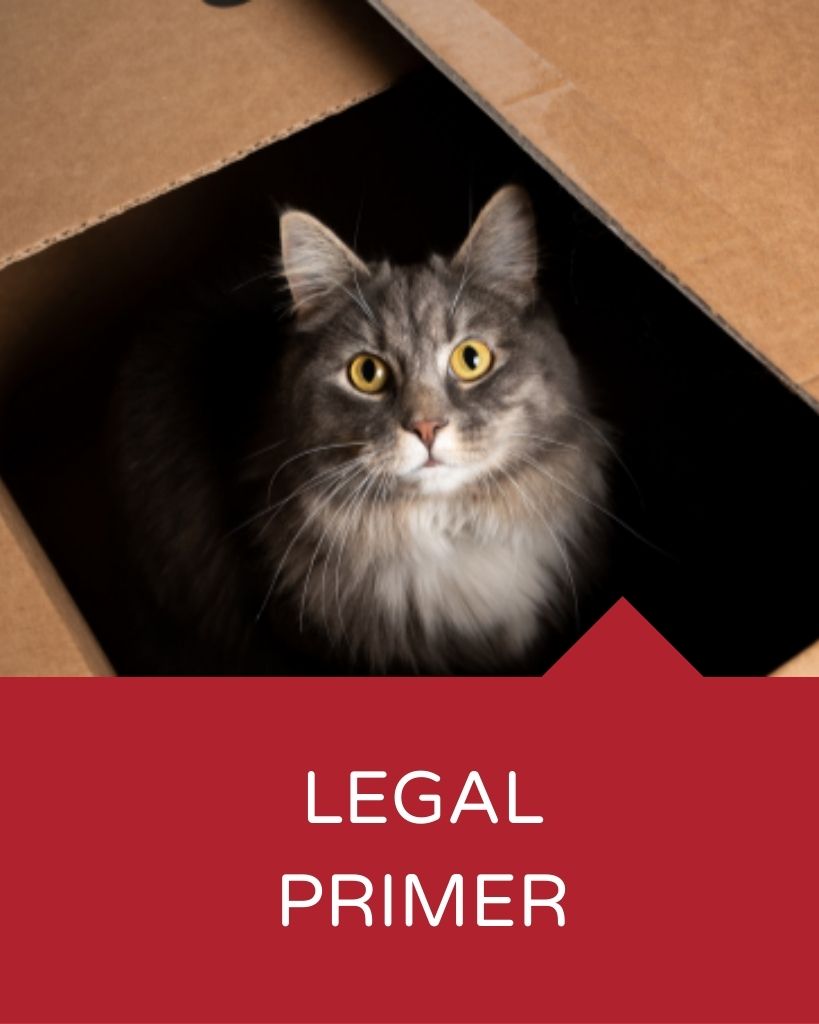1. If landlords can no longer prohibit animals, how can they protect themselves against possible damage caused by animals?
A tenant is legally obligated to keep their unit clean and in good condition, irrespective of whether animals are permitted. Upon termination of the lease, the tenant must leave the property in the condition in which it was received, with the exception of changes resulting from normal aging or wear. In the event of damage, the tenant is required to compensate the landlord for the losses incurred. Whether the damage to the property was caused by an animal or anything else, the tenant would be liable.
Tenants’ legal obligations would not change if no-pet clauses were rendered null and void. Tenants would still be responsible for maintaining their housing unit in good state and landlords would have the same recourses as they do now.
2. What recourse would other tenants have if they feel disturbed by noise or odors caused by animals?
When living in society, particularly in densely populated urban areas, it is normal to be exposed to a certain level of noise. In fact, the Civil Code of Québec requires us to tolerate normal neighbourhood annoyances. However, if the nuisance exceeds what is considered normal or tolerable, the law provides a recourse: a person can go to court to obtain an order for the disturbance to stop and may also claim compensation for the inconvenience suffered. Municipal by-laws also require citizens to ensure their animals do not cause nuisances. A tenant experiencing excessive disturbances due to a neighbour’s animal can therefore ask the municipality to intervene or even file a lawsuit for nuisance. Additionally, whether or not tenants have animals, they are required by law to maintain their dwelling in clean and good conditions, and must also abide by municipal by-laws concerning cleanliness.
3. What if the landlord or another tenant is allergic to animals?
Except in the case of a very severe allergy, a person who is allergic to animals is unlikely to be affected by the presence of an animal in a housing unit other than their own. If, however, the Quebec government were to invalidate no-pet clauses, it would be reasonable for the law to provide for an exception to address this rare situation. In Ontario, where no-pet clauses are null and void, a landlord may nonetheless evict a tenant if the Landlord and Tenant Board is satisfied that the animal in question is, in fact, causing the landlord or another tenant to suffer a serious allergic reaction. Similarly, a landlord may refuse to rent to a tenant with an animal if the landlord can demonstrate that the presence of the animal in the unit would cause serious allergic reactions to someone residing in a separate unit. A similar exception could be considered in Quebec.
4. Although the law already protects landlords and other tenants from any potential damage or disturbance caused by an animal, doesn’t the mere presence of an animal increase the risk of problems?
It is difficult to justify a general and absolute prohibition on animals in housing solely based on a hypothetical risk, especially considering the impact of such a prohibition on the lives of people and their animals. Everything hinges on the animal’s behaviour and the ability of the animal’s guardian to act in a responsible manner. If the animal does not cause any damage or disturbance, there should be no issue. And if the animal does cause damage or disturbance, then the law already provides remedies.
5. If a landlord doesn’t like animals and doesn’t want them in their building, why shouldn’t they have the right to prohibit them?
Our feelings towards animals are a matter of personal preference. It would be difficult to justify imposing such a personal preference onto others, including one’s tenants, particularly in the current housing crisis, given that housing is a basic need. Would it be acceptable for a landlord who doesn’t like a certain type of music to prohibit their tenants from playing such music at reasonable hours and noise levels? Probably not, as this would amount to an unreasonable and completely arbitrary interference in the tenant’s private affairs. Similarly, disliking animals alone – in the absence of damage or disturbance – is not a valid reason to refuse people housing.
6. Given that many tenants live with animals even though their lease prohibits them from doing so, what’s the problem?
These tenants live in constant fear of being forced to part with their animal or move out if their landlord were to find out they have an animal and threaten to enforce the no-pet clause. Tenants who challenge the enforcement of the clause before the Tribunal administratif du logement (formerly known as the Régie du logement) face significant difficulties, as the Tribunal generally favours landlords in upholding no-pet clauses, even in cases where the animal has caused no damage or disturbance. In some cases, no-pet clauses are used as leverage against tenants by unscrupulous landlords, who may, for example, threaten to enforce the clause against animal guardians who demand necessary repairs or renovations. Responsible tenants whose animals don’t cause damages or disturbances shouldn’t have to live under such constant threat of losing their home or being forced to part with their animal.
7. Why can’t people who have animals simply choose animal-friendly housing?
While more than half of Quebec households (52%) include a dog or a cat, only 4.2% of landlords accept tenants with dogs and 41.9% accept those with cats. It can therefore be extremely difficult to find rental housing when you have an animal. Low-income earners have even fewer options open to them, especially given the current state of the rental market in Quebec, in addition to the significant increase in rents. Unlike other types of contracts, which arise from a negotiation between two parties, the typical residential lease is what is known as a “contract of adhesion”: a contract in which the most powerful party imposes its conditions on the weaker party, without any negotiation taking place. Landlords can dictate the terms of a lease knowing full well that if a potential tenant refuses, another more amenable tenant will come along. Thus, animal guardians are unlikely to be able to successfully negotiate leaving the no-pet clause out of the lease, even if their animal is well-behaved. This situation unfairly favours landlords at the expense of tenants’ rights.
8. Isn’t the real problem irresponsible animal guardians? After all, they are the ones getting animals and then abandoning them.
The Montreal SPCA is a frequent witness to heartbreaking scenes in which responsible animal guardians, who love and care for their companion, are forced to part with them simply because they cannot find animal-friendly and affordable rental housing. Such scenes, absolutely tragic for all parties involved, including the animal, are happening in shelters all over Quebec.
9. What is the situation elsewhere?
Both France and Ontario have considered no-pet clauses in residential leases to be unreasonable, abusive and contrary to public order for over 30 years now. France has declared no-pet clauses null and void since 1970. As for Ontario, the provincial government enacted a law in the 1990s invalidating any clause prohibiting the possession of an animal in a rental unit.
10. What if landlords required a security deposit from tenants with animals?
From a social justice perspective, security deposits are a problematic measure because they do not promote fair access to housing for all. In fact, such a measure would be particularly discriminatory towards low-income individuals. Furthermore, the rights of landlords in relation to damages caused by tenants or tenants’ animals are already protected by law, and tenants are liable from the outset for damages to the property.
It should be noted that in Ontario, where animals cannot be prohibited in rental units, security deposits are not permitted. Landlords may only require the first and last month’s rent to be paid at the time of signing the lease and the sums collected must be used to cover the payment of the first and last month’s rent respectively. In no case may the landlord use these sums to cover expenses related to any damages caused by the tenant.









